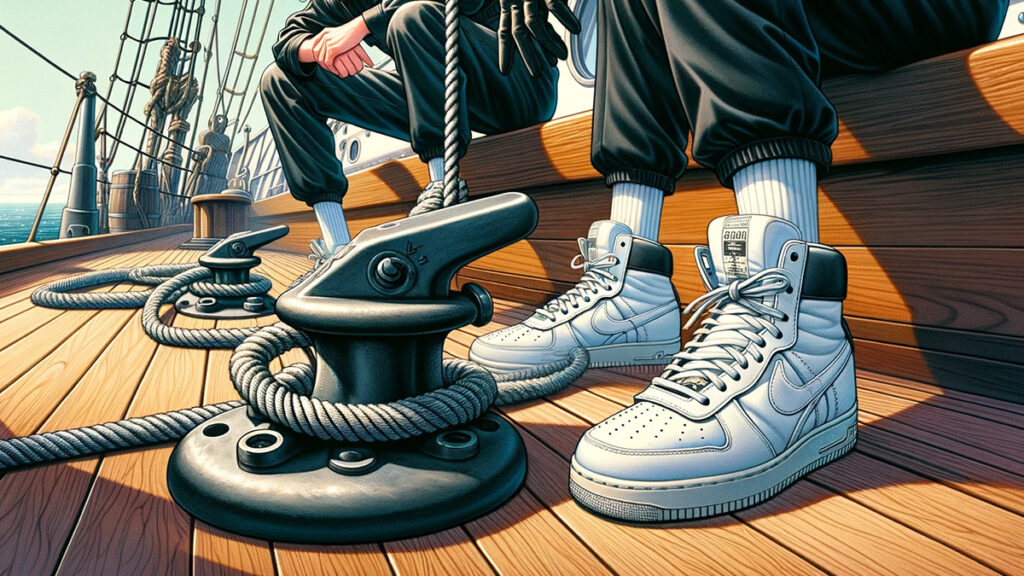Owning a boat is not just about the thrill of navigating open waters; it comes with the responsibility of proper maintenance to ensure peak performance, longevity, and safety.
Whether you’re a seasoned sailor or a novice boat owner, understanding the essentials of boat maintenance is paramount. This comprehensive guide explores critical aspects of boat maintenance, from routine care to addressing common issues, empowering you to keep your vessel in optimal condition for smooth sailing.
Engine Maintenance and Inspection
The engine is the powerhouse of your boat, and routine checks are crucial for optimal performance. Regularly inspect the fuel system, oil levels, belts, and hoses. Ensure there are no leaks, and pay attention to any unusual sounds during operation. Regularly change the engine oil to maintain engine health. Follow the manufacturer’s recommendations for change intervals, using the recommended oil and filters. Clean oil ensures proper lubrication, preventing wear and tear on engine components. Also, look into Minn Kota trolling motor parts essential for auxiliary propulsion systems. These parts ensure the seamless operation of trolling motors, contributing to your boat’s overall performance.
Electrical System Maintenance
The electrical system is vital for various functions on a boat, including navigation lights, electronics, and engine starting. Ensure the battery is fully charged. Clean the battery terminals regularly, and consider investing in a marine-grade battery for durability. Inspect the boat’s wiring for wear, corrosion, or loose connections. Address problems promptly, and consider having a professional inspect the electrical system annually. Regularly testing and maintaining the electrical system not only ensures a smooth boating experience but also contributes to the overall safety and reliability of the vessel, making it essential for every boat owner to prioritize electrical system health.
Propeller and Steering System
The propeller plays a crucial role in the boat’s propulsion, and its condition significantly affects performance. Regularly inspect the propeller for damage, dents, or debris. Keep the propeller clean and ensure it is properly aligned to prevent vibrations and reduce strain on the engine. A well-functioning steering system is essential for safe navigation. Check the steering cables for signs of wear, corrosion, or fraying. Lubricate the cables and ensure the steering wheel operates smoothly. Any stiffness or unusual noises should be addressed promptly. By maintaining a vigilant eye on both the propeller and steering system, boat owners can ensure optimal performance on the water and a safer and more enjoyable boating experience for themselves and their passengers.
Fuel System Maintenance
Quality fuel is essential for the proper functioning of the engine. Use fuel with the recommended octane rating and additives to prevent ethanol-related issues. Additionally, practice proper fuel storage by keeping the tank full to minimize condensation and using fuel stabilizers for long periods of inactivity. Regularly replace the fuel filters to prevent contaminants from reaching the engine. Dirty fuel filters can lead to engine misfires, reduced performance, and increased fuel consumption. Follow the manufacturer’s recommendations for filter replacement intervals. Consistent adherence to recommended fuel quality, storage practices, and timely filter replacements ensures optimal engine performance and safeguards against potential issues, allowing boat owners to navigate the waters with confidence and reliability.
Bilge Pump and Plumbing Checks
The bilge pump is critical for keeping water out of the boat. Test the bilge pump regularly to ensure it operates smoothly. Inspect the pump, float switch, and discharge hose for any signs of damage or blockages. The plumbing system includes hoses, fittings, and through-hull fittings that play a role in water circulation and drainage. Regularly inspect these components for leaks, cracks, or deterioration. Ensure all hoses are securely clamped, and promptly replace any damaged parts. Regularly checking and maintaining the bilge pump and thoroughly inspecting the entire plumbing system is paramount for preventing water-related issues and ensuring a dry and secure interior, underscoring the importance of a vigilant approach to boat maintenance.
Trailer Maintenance
If your boat is transported using a trailer, proper maintenance is crucial for both the trailer and the boat. Inspect the trailer’s tires, bearings, brakes, and lights before each use. Lubricate moving parts and check for rust or corrosion, especially if the trailer is frequently exposed to saltwater. If the trailer has brakes, ensure they are in good working condition. Inspect the brake pads, rotors, and hydraulic system regularly. Additionally, check the axles for signs of bending or damage and replace worn-out components. A meticulous and routine examination of the trailer, encompassing tire condition, brake functionality, and overall structural integrity, not only ensures the safety of your boat during transportation but also contributes to the longevity of both the trailer and the vessel, making it a critical aspect of comprehensive boat maintenance.
Regular Cleaning and Hull Maintenance
The hull is the backbone of any boat, influencing its performance and efficiency. Regular hull maintenance is essential to prevent corrosion, algae growth, and barnacle accumulation, which can compromise the boat’s speed, fuel efficiency, and overall structural integrity. Cleaning the hull involves removing marine growth, dirt, and saltwater deposits. Antifouling, applying specialized paint to the hull, helps deter the growth of organisms like barnacles and algae. Regularly inspect and clean the hull to maintain efficiency and reduce fuel consumption.
Periodically haul your boat out of the water for a thorough inspection. This allows for a closer examination of the hull, propeller, and other underwater components. It is also an opportunity to address any issues that may be difficult to assess while the boat is in the water. If your boat is kept in the water for extended periods, consider applying bottom paint to protect the hull from marine growth, osmosis, and corrosion. Consult with professionals to choose the right type of bottom paint for your boat and the local water conditions.
Safety Equipment and Emergency Preparedness
Safety should always be a top priority on the water. Regularly inspect life jackets for any wear, tear, or damage. Ensure all life jackets are in good condition and appropriately sized for each passenger. Maintain a well-equipped first aid kit on board and regularly check its contents for expiration dates. Additionally, ensure that all emergency equipment, such as fire extinguishers and distress signals, are in working order and comply with safety regulations.

Proper boat maintenance is the key to a seamless and safe boating experience. From routine cleaning and hull maintenance to thorough engine checks, electrical system inspections, and beyond, each aspect contributes to your vessel’s overall performance and longevity. By following the guidelines outlined in this comprehensive guide, boat owners can confidently navigate the waters, knowing that their vessel is in optimal condition for peak performance. Remember, a well-maintained boat ensures safety and enhances the joy of every maritime adventure.



